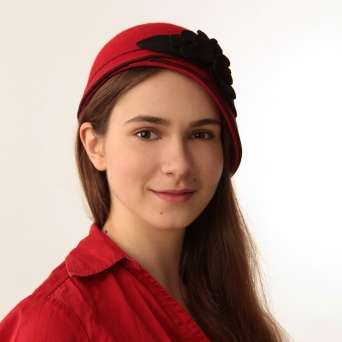Andreas Kriegenburg’s Ring at the Bayerische Staatsoper got off to a slow start last week with Das Rheingold, so I wasn’t sure what to expect from the second opera of the cycle. I was blown away by everything: the singing, the acting, and the playing. It would be hard to imagine a better Die Walküre.
This Ring has also gained a set since Das Rheingold: an impressive tree stands between banquet tables for the first act, and later acts lower the roof of the wooden box in which the action occurs to create a second level. Corpses on poles (with reins attached) represent the Valkyries’ horses well. Supernumeraries and dancers still have much to do, including bridging the gap between Siegmund and Sieglinde and introducing the Valkyries, but the set is no longer almost entirely comprised of them. This balance maintains the cycle’s aesthetic appeal while providing a more useful playground for the singers.
Those singers were brilliant. The stars of the show were surely Klaus Florian Vogt as Siegmund and Anja Kampe as Sieglinde. Both have beautiful, large voices that effortlessly soared over the orchestra. Vogt’s vocal strength and expressiveness particularly shone as he recounted his past in Act I. His acting conveyed despair perfectly, and his threat to kill Sieglinde in Act II was chillingly believable. Kampe showed off her wide range of vocal dynamics and colors (as well as her superior acting skills) in her “mad scene” in Act II. Her Sieglinde had flashes of adorable childishness, which made her abuse at Hunding’s hands especially difficult to watch. Vogt and Kampe also had fabulous chemistry from the moment they saw each other, and it was impossible not to feel elated when they kissed and rolled around in a frenzy at the end of Act I, whatever your moral qualms about incest.
Günther Groissböck sounds better as Hunding than as Fasolt: his voice competed less with the orchestration, and its richness was therefore more apparent. Hunding is an unquestionable villain in his treatment of Sieglinde, and Groissböck made that very apparent in how he grabbed, slapped, and pushed her. He got his just desserts in a spectacular Wotan-directed, throst-slitting suicide at the end of Act II.
Thomas Mayer's Wotan was just right. His audibility problems had disappeared, and his voice remained solid and full of character. Die Walküre provides great opportunities for him to show off his acting skills, and his Wotan experiences the full range of exasperation, anger, despair, and love. His headache during his fight with Fricka was especially funny, and his tenderness towards Brünnhilde in the final act was very moving. As Fricka, Elisabeth Kulman only gets one scene in this opera, but she owned it. She was stunning in her sparkling dress, fabulously imperious in her behaviour, and dominant thanks to her sheer vocal power; it’s no wonder she won her argument.
As the titular Valkyrie, Evelyn Herlitzius was unbeatable. Her voice had some squeaks and rocky transitions, but was usually glorious. Thrilling, martial high Cs turned whisper-soft and dropped an octave in the blink of an eye. An impressively even vibrato kept long notes spinning. And Herlitzius herself is small and energetic; she made Brünnhilde seem like the excitable teenager she ought to be. Her sister Valkyries cried “Hojotoho!” as well as she did, and their voices fitted together perfectly. They may be beautiful, but they were also terrifying: they sang and laughed in the (visible) presence of heroes’ corpses. Susan Foster’s Helmwige particularly stood out to me for clarity of tone and strength of personality, but every single Valkyrie deserves commendation.
Oddly, the most controversial part of the evening was a dance performance at the beginning of Act III. As dancers dressed as Valkyries stomped and swayed, audience members began booing and shouting “Wagner”. This was, of course, countered by enthusiastic applause from the rest of the audience each time. The dance deserved neither: it was well-executed and introduced the production’s ominous concept of the Valkyries well, but it was hardly necessary. (Evenings of Wagner don’t need to be lengthened by the unnecessary.)
The Staatsorchester, led by Kirill Petrenko, have polished some rough edges since Das Rheingold. No mis-steps were audible in Die Walküre – on the contrary, the music was both precise and expressive. It felt more lyrical and legato than I usually expect from Wagner, which was a pleasant change. Tempi were once again brisk, and even the slow Brünnhilde-Wotan conversation in Act III didn’t kill the momentum.
A standing ovation greeted the singers and orchestra during the curtain call. They deserved it for their roles in a beautiful, dramatic, and emotionally affecting Die Walküre. I was luke-warm after Kriegenburg’s Das Rheingold, but now I can’t wait to see the rest of this Ring.




